When nurturing a thriving garden, the right fertilizers must help develop plants. One option is the organic chicken manure fertilizer which is rich in nutrient and can greatly improve soil fertility. This blog post will provide insight into why one should use chicken manure as manure for their garden and its comparison with other organic options. Moreover, we shall deliberate on how you can add it to your garden. Also, we will learn how to handle and apply chicken manure properly so that it does not cause any harm but helps plant growth. By the end of this article, you will have a comprehensive understanding of how to leverage organic chicken manure to create a healthier, more productive garden.
What is Organic Chicken Manure and Why Use It?
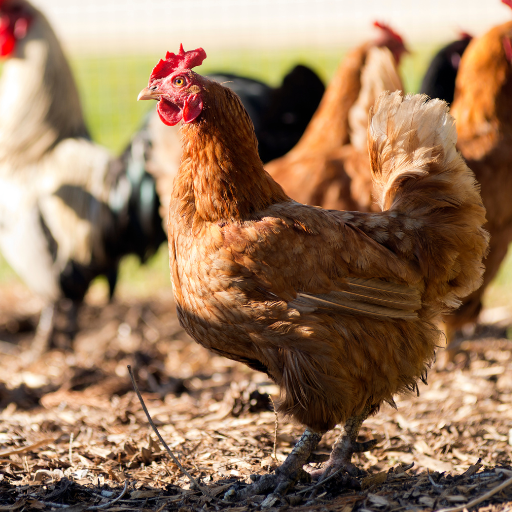
Organic chicken manure is a natural plant food originating from chickens’ droppings. It contains good amount of nutrients such as nitrogen, phosphorous and potassium which are essential for plant growth. Organic chicken manure, unlike synthetic fertilizers, slowly releases nutrients to improve soil structure and water-holding capacity while also providing a steady supply of needed nutrients over time. Using it helps promote healthy microbial activity in the soil, encouraging stronger root development and leading to better plants. The use of organic chicken manure also promotes sustainable farming practices, which reduces reliance on chemical fertilizers, making them the best alternative for farmers who want to be environmentally friendly during gardening.
Benefits of Chicken Manure Fertilizer
- Rich Nutrient Content: Chicken manure’s high nutrient content ranks it as one of the most desired manures because it contains high percentages of Nitrogen (N), Phosphorus (P), and Potassium (K). The typical NPK ratio ranges from about 1.1-0.8-0.5 in this case. These macronutrients are important for inducing strong vegetative growth, robust root system development, and profuse flowering.
- Improved Soil Structure: The presence of organic matter in chicken dung enhances the physical fertility of soils by improving aeration, drainage, and water retention, especially in clayey or sandy soils with poor structure. This enables plants to thrive.
- Promotion of Microbial Activity: Applying chicken manure on fields increases microbial activities in soils, therefore enhancing nutrient cycling and decomposition rates of organic matter, which create simple forms that can be absorbed for direct use by plants.
- Slow-Release Fertilizer: Due to its slow-release nature, it does not burn plants like chemical fertilizer. Thus, it nourishes crops longer than conventional foods, preventing over-fertilization.
- Eco-friendly Choice: Poultry manures, including such, benefit the environment by recycling waste products and lessening the reliance on chemical fertilizers that have adverse effects. They are also important in reducing carbon footprints as far as synthetic fertilizer production is concerned.
Nutrient Content of Chicken Manure
Chicken manure has plenty of nutrients necessary for healthy plant growth. It normally has an NPK ratio of 1.1-0.8-0.5, showing its high levels of nitrogen, phosphorus and potassium respectively, which make up the macronutrients needed for vigor in plant establishment, root development and flowering. On top of the primary nutrients; therefore chicken manure supplies secondary nutrient elements such as calcium (Ca), magnesium (Mg) and sulfur (S), which also enhance plants’ productivity. It is a very strong organic fertilizer that contributes to overall crop health and soil fertility.
Why Choose Chicken Manure Over Other Manures?
There are several reasons why chicken manure is considered superior to other types of animal wastes or manures. First, chicken dung contains more nutrients compared to other types such as cow’s or horse’s manure for instance with an NPK ratio of 1.1-0.8-0.5 it provides concentrated nitrogen (N), phosphorus(p) and potassium(K) for plant growth purposes while cow’s dung has approximately 0.5-0.2-0.4 NPK ratios where horse dung ranges from around 0.7-0.3–0.6 respectively hence chick cling can deliver more amount of nutrients in smaller quantities.
Another advantage is its quicker decomposition rate than other livestock droppings like cows’ or horses’. This aspect makes chicken dung degrade rapidly thereby allowing faster availability of nutrients to plants than other decomposing agents thereof in that field, if compared with them adequately slow down the process though at different rates among themselves ranging from cow’s dung with about ½ -½ -¼ up to horse’s dung ¾ -½ – ¾. The high levels of calcium, magnesium and sulfur in chicken manure contribute to soil structure improvement and plants’ vigor.
This is because chicken manure helps to reduce weed invasion compared to horse and cow dung, which might have undigested seeds. This means the chances of introducing weeds into your garden or farm would be minimal, thus reducing the workload on weed control. Chicken manure, therefore, does not have any of the pathogen concerns associated with untreated manures when it is properly composted.
Overall, due to its rich nutrients, fast breakdown time, and low risk of weed infestation and pathogens, chicken dung offers a better option for organic fertilizer.
How to Properly Use Chicken Manure in Your Garden
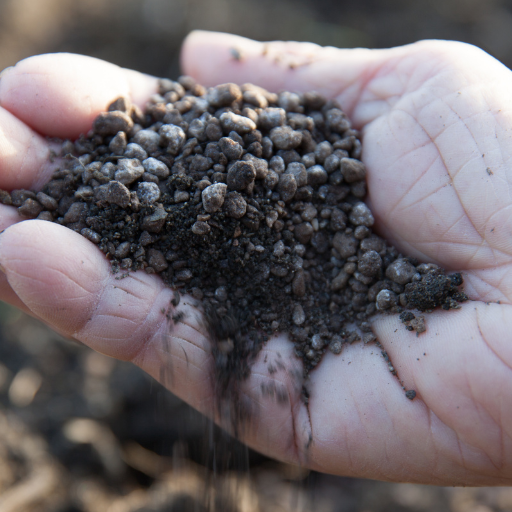
Chicken manure can be used in the garden but you should compost it first. Fresh chicken droppings are usually too strong and might burn plants due to the nitrogen amount they contain. This breaks down its potent ingredients through composting and eradicates pathogens hence safe for use in your garden. Make sure to turn the pile regularly so that it gets mixed with contents while decomposing with the help of chicken manure and other carbon-rich materials such as straw and leaves. After 6 months to a year, spread this composted manure all over your garden soil or mix it into planting beds. A usual ratio would be about 40 pounds of chicken manure compost per 100 sq ft of space in your garden. The fertile organic plant feed will provide balanced slow-release essential minerals that encourage healthy and strong growth.
How to Use Chicken Manure Safely
Chicken Manure cannot be handled without care since this stuff usually does more harm than good when applied directly to the farm land even if its fresh or not. The most important rule is to always compost before using fresh chicken manure because it contains a lot of nitrogen which can easily burn plants’ leaves, fruits, and other parts; another reason why people may opt for fresh mature is that by doing this one kills all microorganisms responsible for diseases back on earth thus protecting neighbors’ health from infections caused by dirty environment like bad smell oozing out according to (Alderson, 2001). Speed up decomposition of the pile through frequent turning so that after six months to one year, applying it becomes possible without posing any dangerous threat posed by raw feces upon contact with skin or eating food with unwashed hands thus introducing harmful bacteria inside our bodies requiring emergency medical attention.
For the application of composed manures,Gardeners should wear gloves when handling them and wash their hands immediately after use. They should also avoid coming into direct contact with crops during spreading the manure. Well-spread chicken droppings could provide nutrients to plants without endangering the health of individuals involved in production.
Fresh and Composted Manure
Fresh manure is a rich source of plant nutrients; it can however be risky if used on garden soil as it is. Placing fresh manure directly onto the garden can lead to its nitrogen rich contents scorching your vegetables, causing damage or a poor harvest. Poorly treated chicken feces may have harmful pathogens that could be dangerous for people’s health and kill crops (White 2). To avoid this risk and help plants grow well, you must always compost chicken dung before applying it.
The benefits of composted manure include slow release and balanced nutrients that do not burn plants during application. The composting process usually takes six months to a year, bringing pathogen numbers to safe levels. For applications of composted chicken litter, about 40 pounds per 100 square feet would be sufficient. It gives enough constant supply required by nitrogen, phosphorus and potassium, which are essential in strong root growth and vigorous plant development.
In conclusion, compared with fresh ones, which are unsafe for use as they require full composting before being applied on any farm land, they make the soils fertile enough for maximum productivity by putting them under all environmental conditions.
When Should I Use Chicken Manure?
For chickens’ poultry, spring during fall provides the best times for using their feces in our gardens, where soil temperatures are optimal for breaking down organic matter, thereby increasing nutrient accessibility from such wastes to plants. Application of chicken manure in spring prepares the ground for planting season by providing an excellent initial boost of fertility necessary for fast and strong early development in seeds, thus supporting the germination process. Alternatively, spreading some chicken guano during autumn ensures enough time given within this period to result in complete decomposition, hence incorporated into the earth over winter, improving its quality towards subsequent plantation seasons.
To avoid transmission of diseases, it is advisable to apply chicken droppings on leafy greens within the last four months before harvest. For crops that do not have direct contact with soil, a 90-day pre-harvest interval will normally suffice. This timing allows for the decomposition of any harmful pathogens, thus ensuring that the produce is safe and healthy.
Effective Use:
- Spring Application: Integrate manure into the soil by applying it two to three weeks prior to planting.
- Fall Application: Spread and till in the garden soil after harvesting to allow microbes to decompose over winter.
- Quantities: Generally, apply about 40 pounds per 100 square feet (or follow soil test recommendations) to avoid nutrient overload and potential runoff problems.
By adhering to these guidelines, you can optimize the benefits of chicken manure in your garden while minimizing possible hazards.
Getting to Know Pelletized Chicken Manure
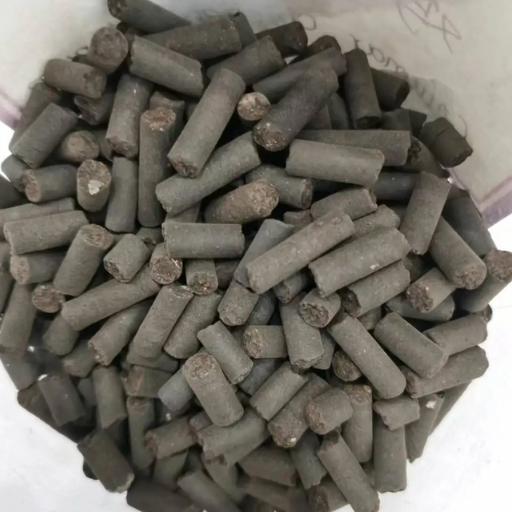
Pelletized chicken manure is a good option for garden fertilization. Pelletized manure is simple to use or keep, unlike raw manure, which can be weighty and tricky to control. In the pelleting process, drying and compressing the manure into small hard pellets eliminates odors and makes nutrients more stable and slow releasing. This type of manure is also helpful in ensuring an even distribution of nutrients across your garden while reducing nutrient runoff. Additionally, most pathogens and weed seeds are destroyed by high heat during pelleting making it safe to apply around different plants. It also typically contains beneficial microorganisms that promote healthy soil ecosystems. This improves soil structure, increases organic matter content, and enhances moisture retention, thereby supporting healthier plants with higher yields.
What makes Pelletized Chicken Manure Different?
Several factors make pelletized chicken stand out from traditional manures. First, its handling and application are easier—pellets spread more easily with lesser odor than raw manures. Second, nutritional composition is relatively constant as this process allows for the slow release of nutrients, thus minimizing risks of nutrient leaching and promoting uniform plant growth throughout its life span. The standard NPK ratio found in organic fertilizers like pelleted chicken manure is 4-3-2.
Most pathogens and weed seeds are eliminated during the creation of these pellets due to high temperature processing, making it safer for gardens and edible plants around them. Do you want to see the Full Version? View full version
Additionally,pelletized manure improves soil structure enhancing water retention/airation due to its organic matter.Including beneficial microorganisms from the manure supports a healthier soil ecosystem that promotes robust plant development.Thus, pelletized chicken-manure happens to be an advanced,better choice that comes along with convenient features over other methods that one can employ on their farm.
How To Use Pelletized Chicken Manure
Spread the pellets evenly over the soil surface or mix them into the top few inches of soil to use pelletized chicken manure effectively. Depending on your plants’ nutrient requirements and the type of soil you have, it is recommended that you apply at different rates for different crops. In general garden use, apply 20 pounds of pelleted chicken manure per 100 square feet. For new plantings, incorporate the pellets into the planting hole or bed at a rate of approximately 1/2 cup per plant for vegetables and flowers, and 1 cup per plant for shrubs and trees.
Mix thoroughly with one tablespoon of pellets per gallon before planting into potting soils for potted plants only. When using pelletized manure as a topdressing, reapply every 6-8 weeks during the growing season to maintain nutrient levels.
Ensure that the pellets come into contact with soil moisture to facilitate nutrient release—water after application to dissolve them and initiate nutrient assimilation. Monitoring soil nutrient levels and adjusting the application rate will yield the best results.
Benefits of Pelleted Chicken Manure for Your Garden
Pelleted chicken manure is a superior choice for gardeners looking to enrich their soil with a balanced, slow-release organic fertilizer. One of the merits of using pelleted chicken manure is the high nutrient content, such as nitrogen, phosphorous, and potassium. Slowly releasing these nutrients ensures that plants get a constant supply, which in turn leads to healthy growth.
Moreover, it improves soil structure when applied to soils. The organic matter in manure mproves the capability of retaining water and aerating the soil thereby making it an ideal place for root growth. As a result, this leads to flourishing plant vigor and resistance against drought.
The pellets also bring useful microorganisms to the ground. This helps decompose organic matter, adding more fertility to soil and enhancing its availability to plants. With microbial activity being so vital here, there will always be a thriving soil community, which means continued plant health.
Again, fertiliser made from pelletized chicken dung is easy to handle and apply. Unlike fresh dung, this form of poultry droppings is small, dense, odorless spheres that make it usable by gardeners. Unlike raw manures, pelletized chicken dung can be used as fertiliser easily by gardeners. It reduces the leaching of essential minerals, hence reducing the risk of nutrient runoff or potential contamination.
In summary, what distinguishes pelleted chicken manure from other related products includes its rich nutritional profile, ability to improve soil structure, reliance on friendly bacteria as well as ease of use by different users. These properties make it most preferable for individuals who want their gardens remain healthy while at the same time producing crops prolifically.
Composting Chicken Manure
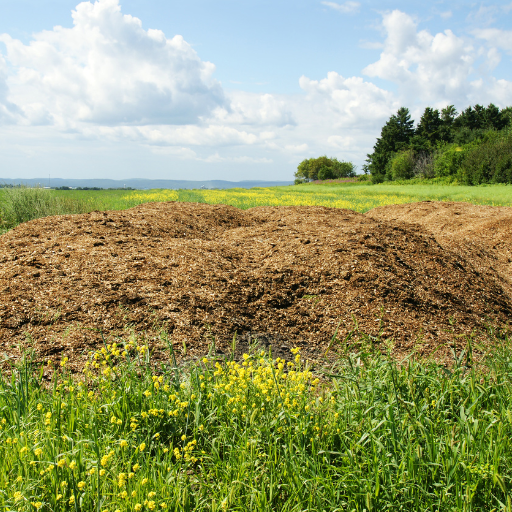
Composting chicken manure involves changing fresh manure into a beneficial organic fertilizer. To start off with, you must first age the manure because of its high nitrogen content in fresh chicken manure which may result in burning plants. Give the manure time to decompose for at least six months. Then, prepare a balanced compost pile by layering carbon-rich materials like straw or leaves with chicken manure. This mixture ensures proper air circulation and helps to counterbalance the high nitrogen level of the waste. Continual turning of the compost pile is important since it allows oxygen to facilitate decomposition while preventing bad odors from forming. The moisture levels should also be regulated so the heap remains moist but not watery. After about 6-12 months, when composting is complete, applying this material in gardens helps improve soil fertility and structure without posing any risk to plants through nutrient burn.
Steps for Composting Chicken Manure
- Collect and Store Manure: Begin by collecting chicken droppings from your coop along with bedding materials like sawdust or straw. Set this lot aside under your designated compost area or bin.
- Age the Manure: Let sit for six months to one year before using on plants (during this period, ammonia will be released lowering high levels of nitrogen found in fresh dung).
- Create a Compost Pile: Get some leaves, wood shavings or straw besides chicken dumping for composing purposes and arrange them alternatively to balance their abnormal nitrogen.
- Turn the Pile Regularly: Every few weeks, turn your pile by aerating it, introducing oxygen that supports bacterial activity, breaking down compostable substances and limiting smell.
- Monitor Moisture Levels: Keep damp but not too wet; what you need is something similar to a wrung sponge’s moisture content throughout (you should check on it and adjust the moisture content regularly).
- Allow Compost to Cure: Once the composting process has significantly reduced the volume of the pile and it has a dark, crumbly texture, allow the compost to cure for an additional period, typically 2 to 4 weeks, to ensure it is stable.
- Apply to Gardens: After curing, safely apply the composted chicken manure to your garden, enriching soil fertility and structure with plenty of nutrients for plants. Spread evenly over the dirt or mix into only about two inches of the top layer for maximal effects.
Managing the Composting Process
To effectively manage the composting process, ensure a balanced mix of green and brown materials. Nitrogen is supplied by greens such as kitchen waste or lawn clippings while carbon is provided by browns like leaves or paper. Turn compost regularly so that decomposition can occur quickly due to increased air circulation. Besides maintaining adequate levels of moisture which should be similar to a squeezed sponge, attention ought to be paid towards temperature changes that may occur inside heap. The optimal range for good quality compost lies between 135-160°F; hence, make sure that heat does not drop below these limits in order to keep your procedure active again by adding some more green stock as well as increasing turning when necessary.
Benefits of Chicken Manure Compost
Compared to other types of manure, composted chicken manure is more nutrient-concentrated, enhancing soil fertility. It contains high levels of nutrients such as nitrogen, phosphorus and potassium essential for plant growth. Technically, chicken manure compost has nitrogen content ranging from 1.5-2%, phosphorous content ranging from 1-1.5% and potassium content ranging from 0.5-1% all in support of strong plant growth respectively. In addition, organic matter derived from chicken manure improves soil structure, thereby increasing its water-holding capacity and promoting healthy root systems. Furthermore, it helps balance pH in the soil creating a better environment for plants since it supports microbial activity. Besides, chicken manure compost stimulates microbial activity in the soil which is responsible for nutrient cycling and general soil health.
Improving Soil with Chicken Manure
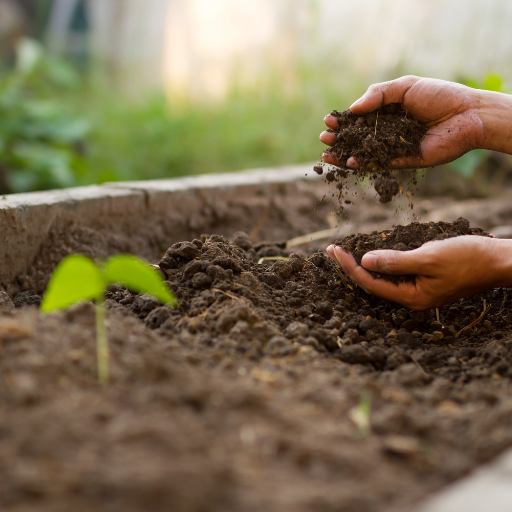
Using chicken manure in soil requires high degree of caution as it can result into nutrient imbalance or diseases. Spread composted chicken manure evenly over the garden bed before planting to improve the soil quality. Aiming for about 40 pounds per 100 square feet for better results is best. This practice improves availability of nutrients and also increases the percentage of organic matter present in the soil. Best results are achieved by incorporating the compost into the top six to eight inches of soil tillage. The need to make sure that manure is well rotted before use cannot be overstated since it will prevent burning roots from high nitrogen levels and kill any hazardous pathogens at such that may exist there within. Frequent testing of soils prior and after addition helps keep a tab on nutrient levels as well as pH hence, ensuring a good growing environment for crops.
Soil Health And Organic Matter
Maintaining organic matter content in soils does improve their health by increasing their structure, holding more water, and improving microbial activity. Chicken manure composts among other organic matters contains important elements like; about 1.5-2% Nitrogen, 1-1.5% P and around 0.5-1 % These additions increase cation exchange capacity (CEC) necessary for effective nutrient retention by increasing concentration of humus derived from fully decomposed organic materials an integrating them into the soil thus enhancing sustainability in plant growth Technical guidelines suggest that maintaining organic matter levels between 3-5% in garden soils can effectively optimize plant health and productivity.The regular incorporation of well-rotted organic matter ensures long-term fertility and improved resilience.
Chicken Manure a Soil Amendment
Chicken manure is among many successful amendments because it provides rich nutrients and enhances soil structure. The contents of chicken droppings range from a minimum of 1.5 – 2% N to 1-1.5% P and a maximum of 0.5 -1% K. Plants require primary nutrients that assist in leaf development, root growth, and the general healthy state of the plant. Adding chicken manure to the soil also improves the organic matter content, thereby increasing microbial activity and water holding capacity.
The technical requirements for use of poultry manure suggest that it should be fully composted to avoid burning plant roots due to high nitrogen levels or diseases caused by these pathogens. The application rate is usually between 200 and 400 pounds per 1000 square feet, depending on recommendations. Chicken dung usually requires about six months to one year for complete decomposition which helps stabilize nutrients and reduces unpleasant odors.
Regular soil testing ensures that nutrient levels are maintained within limits, achieving optimal growing conditions. By maintaining organic matter levels between three and five percent and following recommended application rates, gardeners can enhance soil fertility and plant productivity in a sustainable manner.
Soil Fertility Impact
Chicken dung enhances soil fertility since it is a good source of organic matter containing important nutrients such as nitrogen, phosphorous, potassium. Its high percentage of nitrogen provides an essential element required by plants for vigorous growth, thus enhancing leafing out. Phosphorus available assists in flower development, whereas potassium contributes towards overall vigor and disease resistance among crops.This is because incorporating chicken droppings into garden soils is able to improve their structure and increase microbial activity therein while enhancing moisture retention (soil). It is a complex improvement that supports continued crop production but also sustains prolonged soil fertility making it an outstanding sustainable amendment for farmers.
Other Questions About Chicken Manure Fertilizer
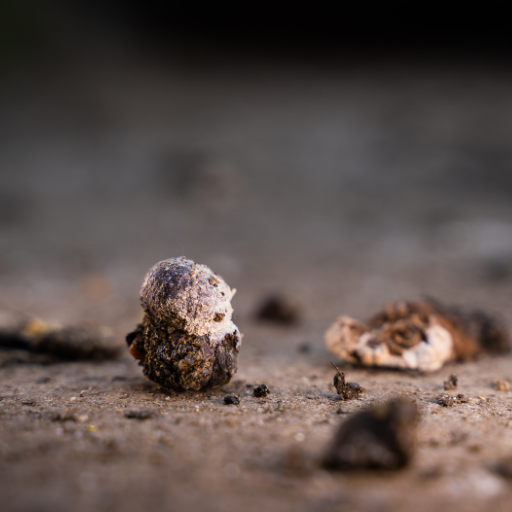
Chicken manure fertilizer prompts several questions regarding its use and benefits. Firstly, can you apply it directly on plants? Fresh chicken manure may be too strong for plants due to its high nitrogen content, which can burn them; therefore, it is advisable to compost it first. Secondly, how long should chicken manure be composted? The composting process usually takes 6 to 12 months, which ensures the elimination of pathogens and the stabilization of nutrients. Thirdly, what amount is recommended for application? General recommendation guidelines suggest applying 200-400 pounds per 1,000 square feet of garden space but conducting routine soil tests to guide soil management practice is recommended. Lastly, does chicken manure compost attract pests? Properly composted chicken manure reduces the chances of pest infestation compared to fresh manure. Adhering to these practices helps maximize the benefits while minimizing potential issues.
Can You Use Fresh Chicken Manure?
It’s not normally safe to use fresh chicken excrement directly onto plants due to the rich presence of ammonia and nitrogen levels, which cause burning in plants. Raw manures may also contain harmful pathogens that risk humans and animals. Instead, it is advised that one has to resort into composting before use in farming activities. This process takes about six months or a year, when harmful substances are broken down while the nutrients stabilize.
Measuring soil nutrient levels and making modifications based on those results is recommended by the National Gardening Association for application purposes. As a rule of thumb, between 200-400 pounds of well-composted chicken dung per 1,000 square feet will do; however, this should vary depending on specific needs about different soils as established from soil testing.
According to scientific data from research, fresh chicken droppings have approximately 1.5%nitrogen (N),0.5% phosphorus (P), and .8 % potassium (K) by weight. However, composting helps to neutralize the high nitrogen content and kill pathogens thus making it safer and more efficient for garden use. Besides enriching the soil, properly composted chicken manure also reduces pest attraction.
How Often Should You Apply Chicken Manure?
The frequency of applying chicken manure to your garden depends on several factors, including your soil’s nutrient needs, the type of plants you are growing, and the quality of the composted manure. Generally, composted chicken dung should be applied once in spring before planting and after harvest in autumn, allowing nutrients to be consistently available for plants throughout their life cycle.
University of Minnesota Extension recommends incorporating composted chicken manure into soil at a rate of 20 pounds per 100 square feet. This application rate should be adjusted based on soil test results. Additional applications for heavy feeders like tomatoes and corn may be required during the growing season.
Regarding technical information for application, this type of fertilizer has a nitrogen content that ranges from 1.1% to 4.2%, phosphorus is between 0.8 %and 1.8%, and potassium ranges from 0 to 8% to .3%. These figures indicate that chicken manures are rich in nutrients implying that careful application must be accorded them to avoid excessive nutrient loadings or plant injury due to toxicity levels
In a word, if you want to optimize plant growth and soil fertility while minimizing adverse effects, just apply chicken manure compost two times a year. The only thing to remember is that it should be adjusted according to soil tests and specific crop needs.
Comparison between Chicken Manure and Other Organic Fertilizers
When comparing chicken manure with other organic fertilizers, one should consider its nutrient content, availability, and impact on soil health. One of the reasons why chicken manure is loved is its high levels of nitrogen, which are very important in promoting plant growth. However, phosphorus and potassium are relatively high, too, making it an all-around fertilizer option.
Another common organic manure for farming is cow dung, though not much talked about. It is known for having more organic matter, which improves the structure of the soil. But then again, compared to chicken manure, nutrients are generally low in concentration, such as 0.5-1.5% nitrogen content, 0.2-0.5% phosphorus content, and 0.5-1% potassium content.
Horse manure could also be used, but it may have been mixed with bedding materials like straw or sawdust before being applied to crops, especially for small-scale farmers who cannot afford commercial fertilizers.Yield lower than those of poultry droppings despite being used to improve water holding capacity and soil structure.This compost contains approximately 0.6 percent N,
Another alternative source of manure that can be turned into rich compost besides cattle rearing is goat keeping because their droppings smell less strong and come in pellet form therefore they are easier to handle.These usually contain about 2%N; which will be good enough for most crops grown in Kenya.Apart from horse or cow dung which have lesser percentages compared to this type of waste material,
To sum up: these nutrient concentrations make chicken poop highly suitable for intensive nutrient-demanding crops in contrast to the rest which mainly improve overall soil texture and health.
Reference sources
- University of Nevada, Reno Extension
- Source: Using Chicken Manure Safely in Home Gardens
- Summary: This publication from the University of Nevada, Reno Extension provides comprehensive information on the nutrient content and safe application methods of chicken manure. It emphasizes the high levels of nitrogen, potassium, phosphorus, and calcium in chicken manure, confirming its effectiveness as an organic fertilizer.
- The Spruce
- Source: Using Chicken Manure as Garden Fertilizer
- Summary: The Spruce offers detailed insights into the benefits of using chicken manure as a garden fertilizer. The article highlights its complete nutrient profile, including essential macronutrients and micronutrients, and provides practical advice on its application, supporting its use as a valuable organic amendment.
- Grow Organic
- Source: Chicken Manure: Perfect Fertilizer for Your Vegetable Garden
- Summary: Grow Organic discusses the advantages of chicken manure in enhancing soil fertility and supporting vegetable gardening. The article explains the nutrient content, including nitrogen, phosphorus, and potassium, and validates its role as an effective organic fertilizer through real-world applications and benefits to plant growth.
Frequently Asked Questions (FAQs)
Q: What are the benefits of using chicken manure fertilizer?
A: Chicken manure fertilizer enriches soil with essential nutrients, improves soil structure, and enhances microbial activity. It is an excellent source of nitrogen, phosphorus, and potassium, which are vital for plant growth.
Q: What nutrients are found in chicken manure?
A: Chicken manure contains high levels of nitrogen, phosphorus, and potassium. It also includes secondary nutrients such as calcium, magnesium, and sulfur, as well as trace elements like copper, zinc, and manganese.
Q: Why should I choose chicken manure over other types of manure?
A: Chicken manure has higher nutrient content compared to other manures, making it more effective at promoting plant growth. It is also more readily available and can be composted to reduce odor and pathogen risks.
Q: How can I use chicken manure safely in my garden?
A: To use chicken manure safely, ensure it is well-composted to kill harmful pathogens. Apply it evenly to avoid nutrient overload and wash hands thoroughly after handling. Follow recommended application rates to prevent plant damage.
Q: Should I apply fresh chicken manure or composted manure?
A: Composted chicken manure is safer and more effective than fresh manure. Composting reduces the risk of pathogens, decreases odor, and stabilizes nutrients, making them more accessible to plants.
Q: When is the best time to apply chicken manure to my garden?
A: The optimal time to apply chicken manure is in the fall or early spring. This allows the nutrients to integrate into the soil before the growing season, ensuring plants have access to essential nutrients when they need them most.
Q: What makes pelletized chicken manure different from regular manure?
A: Pelletized chicken manure is processed into small, easy-to-handle pellets. This form reduces odor, simplifies application, and provides a slow-release of nutrients, making it more convenient and efficient for gardeners.
Q: How do I use pelletized chicken manure in my garden?
A: Apply pelletized chicken manure by scattering the pellets evenly over the soil surface or mixing them into the soil. Follow the recommended application rates on the packaging to avoid over-fertilization.
Q: What are the benefits of using pelletized chicken manure?
A: Pelletized chicken manure is less odorous, easier to apply, and provides a consistent release of nutrients. It improves soil structure, enhances water retention, and promotes healthy plant growth.
Q: Can I use fresh chicken manure directly in my garden?
A: Using fresh chicken manure is not recommended as it can contain harmful pathogens and high levels of ammonia that can burn plants. It is best to compost the manure before application.
Q: How often should I apply chicken manure to my garden?
A: The frequency of application depends on the nutrient needs of your plants and the existing soil fertility. Generally, applying chicken manure once or twice a year is sufficient for most gardens.
Q: How does chicken manure compare to other organic fertilizers?
A: Chicken manure is richer in nutrients compared to many other organic fertilizers. It provides a balanced supply of nitrogen, phosphorus, and potassium, making it highly effective for plant growth and soil health.






